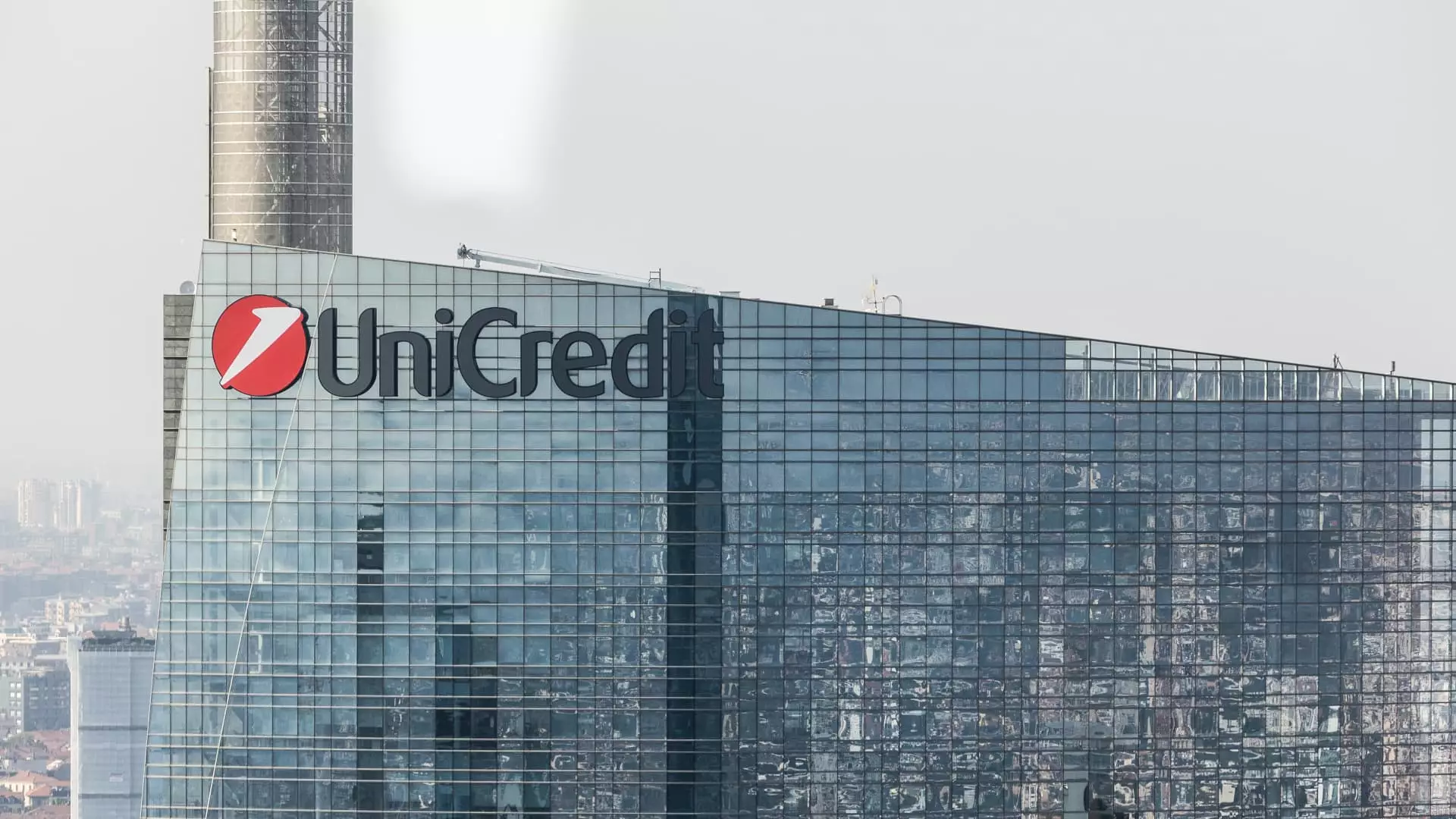In a landscape riddled with complexities and conflicting interests, UniCredit’s recent financial disclosures paint an alluring picture of triumph. A staggering 25% increase in net profit signals a positive trend, yet this seemingly dazzling figure conceals underlying fragility. The celebration over a surge to 3.3 billion euros in quarterly profit obscures the broader context— the profit leap was significantly buoyed by exceptional, one-off items, not sustainable operational growth. Underneath the veneer of impressive numbers, the bank’s core revenue decline of 4.7%, culminating in a figure of just 6 billion euros, reflects deeper vulnerabilities. The glossed-over reality is that reliance on extraordinary gains and consolidation activities masks the persistent challenges that threaten long-term stability.
This focus on short-term numbers fosters a dangerous complacency among stakeholders, reinforcing a false narrative that the bank is navigating decently when, in truth, its foundational health appears more precarious than the headline figures suggest. It underscores the peril of valuing ephemeral gains over enduring value—a trap that many corporate narratives, especially within the financial sector, often fall into.
Strategic Oversights and the Illusion of Strength
The decision to withdraw the bid for Banco BPM, while framed as pragmatic, starkly illuminates institutional vulnerabilities and external pressures. Rome’s exercise of “golden power”—an intervention mechanism aimed at safeguarding national interests—is emblematic of rising governmental encroachment on financial markets, particularly those as strategically vital as banking. UniCredit’s CEO Andrea Orcel candidly acknowledged that the opacity surrounding Italy’s political safeguards rendered the acquisition unviable, exposing a broader flaw: reliance on government tolerance for strategic growth is equally risky as it is uncertain.
From a liberal perspective, this demonstrates the potential for populist and nationalist interventions to distort market logic and inhibit healthy corporate evolution. Instead of fostering an environment where mergers create genuine value, regulatory overreach morphs into a tool for political leverage, sidelining shareholder interests and long-term strategic planning. The bank’s claim to be “bulletproof” seems more aspirational than rooted in tangible resilience, especially when external political forces can easily derail ambitions.
Furthermore, the narrative that UniCredit is primarily focused on creating value rings hollow when examined through the prism of its strategic moves. The bank had, for months, pursued aggressive expansion through acquisitions, a risky endeavor that presumes favorable regulatory climates. Yet, the government’s intervention underscores the fragile balance between ambition and political interference—a dynamic that renders such ambitions not only uncertain but potentially counterproductive.
The Myth of Banking Stability in a Politicized Environment
The wider European context reveals a troubling trend: governments perceiving banks as pawns in broader national interests rather than entities driven by market fundamentals. The EU’s critique of “golden power” usage in Italy, Spain, and elsewhere highlights a growing skepticism about political meddling in financial mergers. Such interventions threaten to entrench inefficiencies and weaken the European banking landscape—arguably a betrayal of liberal values of fair competition and free markets.
For UniCredit, the failed bid signals a missed opportunity that was as much about political barriers as corporate strategy. The bank’s reliance on external factors—such as government approval—undermines its internal capacity to generate sustainable growth. This dependency casts doubt on whether recent profit improvements are genuine or merely cosmetic, achievable only within a narrow window free of political disturbance.
From a liberal—or center-left—perspective, the response should be advocating for reforms that limit state interference and promote transparency. These measures would empower banks to pursue sensible growth trajectories without being thwarted by opaque political safeguards. Failing to do so risks institutional stagnation, where banks become hostage to nationalistic agendas rather than serving their shareholders and customers effectively.
The Hypocrisy of Regulatory Overreach and Its Consequences
UniCredit’s experience exposes a troubling double standard in European financial regulation. While banks and technology giants are scrutinized and held accountable for transparency and stability, political actors invoke national security as a pretext to block mergers—a move that smacks of protectionism rather than prudent oversight. The “golden power” rule is wielded selectively, often at whims that serve political ends rather than economic rationality.
This inconsistency ultimately erodes confidence in the regulatory framework, casting a shadow over the banking sector’s ability to function efficiently and adapt to global competitive pressures. It encourages uncertainty and discourages foreign investment, which stifles growth potential in a sector that should be at the forefront of economic renewal.
Furthermore, the rejection of Banco BPM acquisition reveals how political fears can eclipse rational business judgment. UniCredit’s CEO’s candid statement—Admitting they are “done” with the deal—reflects a pragmatic recognition that these barriers are insurmountable at present. If policymakers truly aspire to foster competitive banks that serve their economies well, they must reevaluate the tools they wield, ensuring they serve growth and innovation rather than nationalist anxieties.
UniCredit’s glowing financial report and its abortive acquisition attempt exemplify a broader systemic tension between market forces and political interference. While the bank’s reported gains offer a snapshot of resilience, they obscure the risks posed by political meddling and strategic missteps. The challenge now lies in striking a delicate balance: safeguarding national interests without stifling the entrepreneurial spirit and operational independence critical to a healthy, dynamic banking sector.
In a liberal European framework, fostering transparency, reducing heavy-handed regulation, and ensuring fair competition should be paramount. Only then can banks like UniCredit truly realize their potential—not just through fleeting profits, but through sustainable, long-term growth rooted in market-driven innovation and responsible governance.

